April 20, 2021
My love of coffee is no secret.
In fact, I’ve been sipping on this delicious, aromatic, health-promoting elixir since the ripe ol’ age of 13, when my dad launched a fresh-roasted coffee company in our local North Idaho town. Even as a young buck, I would think nothing of throwing back a few shots of espresso in the morning, having another heaping cup o' joe after lunch, and then ending the day with “affogato”—an Italian dessert that consists of a shot of espresso over ice cream. I now even use spent coffee grinds on meats rubs, as a facial scrub and to create compost, and have branched out into the realm of not just drinking coffee, but making coffee-infused smoothies and ice creams and even doing detoxifications protocols with coffee enemas.
So yeah, coffee is a big part of my life.
While I’ve learned some important lessons about caffeine addiction, overuse, and tolerance since my early teenage days of quaffing what was probably way too much coffee, and am much more responsible with my coffee consumption these days, I’m still just as intrigued by this magical brew, especially when it comes to its health and longevity-promoting properties – which I think are just as impressive as coffee's “wakefulness” enhancing effects.
In fact, I’ve produced dozens of articles (such as “23 Years Of Suckin’ Down Coffee: Tips, Tricks & Hacks I’ve Discovered For Getting The Most Out Of One Of The Safest Superfoods That Exists”) and podcasts (check out “The Ultimate Coffee Podcast: Everything You Need To Know About Coffee Health, Including The Latest Lab Results On Which Coffee Is The Healthiest” and “How To Buy, Roast, Grind & Brew The Healthiest Cup Of Coffee You’ll Ever Drink”) about coffee, written about it extensively in my book Boundless, featured it in several recipes in my brand-new Boundless Cookbook, and even co-founded a company that makes (yeah, yeah, I know I'm biased, but just sayin') one of the highest-quality, best-tasting coffees on the face of the planet.
And yet, it's been quite some time since I've given you an extensive research-backed breakdown on coffee, the latest research on what makes coffee so healthy, its potential negative effects, and exactly how to maximize the benefits—and minimize the downsides—to get the most out of your morning cup o’ joe.
It's high time I gave you some of these groundbreaking updates on coffee.
So buckle up, and get ready to take a deep, deep dive into the world’s beloved, second-most consumed beverage (after plain ol’ water, of course—or arguably wine or beer, depending on who you are).
What Makes Coffee Uniquely Healthy?
Before jumping into the vast list of health benefits associated with drinking coffee, it’s helpful to distinguish what exactly makes it uniquely health-promoting. There are more than 1,000 natural compounds in coffee, but three in particular stand out in terms of their ability to provide health benefits: caffeine, antioxidants, and diterpenes.
Caffeine
Ahhh caffeine; it’s why most of us start chugging coffee as college kids, cramming for final exams into the wee hours of the night or nursing a hangover the next morning, and why we continue—and maybe even increase—our coffee consumption for many years thereafter.
Caffeine is one of the world’s most popular “drugs” by far, and with it comes coffee’s notorious double-edged sword. Caffeine is often the reason coffee gets a bad rap, but it’s also the source of some of its benefits, too.
Caffeine works on a neurotransmitter called adenosine, which accumulates in the brain throughout the day, dampens brain activity, and increases feelings of tiredness and low mood. Caffeine blocks adenosine receptors in the brain, keeping adenosine from attaching to them, which results in higher perceived energy levels, mental alertness, and enhanced mood. Caffeine's health benefits go beyond wakefulness, though, and may include fat burning (by increasing lipolysis), improved post-exercise recovery (through the promotion of glycogen resynthesis), help with atrial fibrillation (through antifibrotic actions), and more. Caffeine consumption may even be associated with a lower risk of dementia and/or Alzheimer's. (I wrote an entire article about how caffeine affects your body here if you want to learn more about it.)
However, not everyone tolerates caffeine well and consumption can come with downsides, including addiction or dependence, increased blood pressure, anxiousness, and sleep disruptions. But more on how to avoid those negative effects later…
Antioxidants
Another source of coffee’s health-promoting properties is high levels of bioactive antioxidants, compounds that fight free radicals in the body, which are known to cause oxidative stress, cellular damage, and a host of other chronic diseases.
Antioxidant levels in coffee can range from 200-500mg per cup depending on the type of beans, source, roasting, and brewing method used (yes, all of those factors should be considered when choosing and making your coffee if you want the healthiest version possible, which we’ll dive into further on).
While coffee contains many different antioxidant compounds, the two classes that are most studied are hydroxycinnamic acids and phenolic acids, which include potent bioactive polyphenols such as chlorogenic acid (CGA) and caffeic acid.
The CGA in coffee has been shown to have promising health benefits, including positive effects on blood pressure, blood sugar levels, and even weight, BMI, and body fat percentage. Caffeic acid may increase athletic performance and have anti-aging effects on the skin (it’s actually used in a lot of skincare products for this reason).
Diterpenes
The third notable health-promoting compound of your morning cup o’ joe is diterpenes, which include cafestol and kahweol—fatty acids that are present in “unfiltered” coffee such as Turkish coffee, most espresso, and French Press.
Cafestol and kahweol are responsible for a host of health-promoting mechanisms in the body, including down-regulating inflammation mediators, increasing glutathione (GSH), inducing apoptosis of tumor cells, and anti-angiogenesis.
Cafestol and kahweol, like caffeine, are sometimes portrayed as another negative aspect of coffee, as they’ve been shown to slightly increase plasma triacylglycerol and low-density lipoprotein (LDL) cholesterol. However, it appears the jury is still out on whether these small increases in cholesterol actually translate to any effects on cardiovascular health.
I’m personally not worried about cholesterol levels and still drink mostly unfiltered coffee from a French Press or another method to get the potent benefits of these diterpenes. However, if you are concerned about LDL cholesterol for one reason or another, simply use a coffee brewing method that uses a paper filter to remove the diterpenes—just know that you may also be filtering out some of the potent antioxidants like CGA, as well. I unpack the ins and outs of coffee filtration in my podcast “How To Buy, Roast, Grind & Brew The Healthiest Cup Of Coffee You’ll Ever Drink” with Adel Moussa and “A Quest To Find The Purest Coffee On The Planet (& The Shocking Truth About Popular “Organic” Coffee Beans)” with Andrew Salisbury.
The Science-Backed Health Benefits of Coffee
Not too long ago, coffee was receiving a host of bad press (ha, get it?) and was blamed for everything from dehydration to heart disease to cancer. However, thanks to the scientific community waking up to smell the coffee beans, we now have thousands of research studies to back up the health benefits, giving us even more reasons to continue pouring ourselves a cup (or two, or three) of it each morning.
In fact, a quick search for “coffee” on Google Scholar will pull up over 3.6 MILLION results—an overwhelming majority of which show positive correlations between coffee consumption and health.
The 2015 Dietary Guidelines presented a big shift for coffee’s PR when it was included as a part of their healthy diet recommendations (which, I typically take with a grain of salt, for obvious reasons), stating:
“Currently, strong evidence shows that consumption of coffee within the moderate range (3 to 5 cups per day or up to 400 mg/d caffeine) is not associated with increased long-term health risks among healthy individuals. In fact, consistent evidence indicates that coffee consumption is associated with reduced risk of type 2 diabetes and cardiovascular disease in adults. Moreover, moderate evidence shows a protective association between caffeine intake and risk of consumption can be incorporated into a healthy dietary pattern, along with other healthful behaviors.”
Here’s just a very small snapshot of the thousands of studies that make up the “consistent” and “strong” evidence for the health-promoting properties of coffee:
- Boosts endurance exercise performance:
- A meta-analysis of 21 studies showed that exercise performance improved by 11-12% on average with caffeine consumption (due to a reduced rate of perceived exertion). Drinking caffeinated coffee during and following exercise may uplevel the physical benefits.
- A double-blind study with participants who drank decaf or regular coffee found that the caffeinated coffee drinkers outperformed decaf drinkers by 4.2 seconds in a 1500 meter run and increased VO2 max. The findings suggest that drinking caffeinated coffee could enhance performance during sustained high-intensity exercise.
- Enhances fat-burning and metabolism:
- Participants in a study who drank strong coffee 30 minutes before afternoon exercise increased fat-burning by 11-13%. This effect was not found for morning pre-exercise coffee drinkers. So, if you're an afternoon exerciser, you may benefit from caffeine a half hour before working out, though I still recommend avoiding the consumption of caffeine for 5 hours before bedtime.
- A study found that caffeine stimulates thermogenesis, increasing resting metabolic rate (RMR) by 3-11% (more so in obese populations and non-regular coffee drinkers). There was also a significant increase in energy expenditure (EE) in subjects during the day. The findings suggest that if you drink caffeine in regular doses, it can have a positive effect on your energy balance and may be effective in treating obesity by promoting thermogenesis.
- Boosts mood and mental health:
- A large study in Korea found that subjects who drank at least 2 cups of coffee per day experienced a 32% lower prevalence of self-reported depression than people who did not drink coffee. Frequent consumption of caffeinated coffee may have a significant positive effect on your mood.
- Promotes long-term brain health:
- A number of studies associate caffeinated coffee consumption with a lower risk of cognitive diseases such as Alzheimer's and dementia. Regular coffee drinking associated with a 32-65% decreased risk of neurodegenerative disease and cognitive decline, possibly due in part to coffee's antioxidant properties. Your brain may benefit from drinking coffee, which is of course of particular interest if you know you are at risk for cognitive disorders.
- Supports cardiovascular and metabolic health:
- Coffee has been associated with a substantially lower risk of type 2 diabetes, with each daily cup linked to a 7% reduced risk. Habitual coffee consumption should not be discounted if you want to minimize the chances of becoming diabetic.
- Women should consider regular, moderate coffee consumption to help prevent coronary heart disease, according to a large meta-analysis of 21 English studies.
- In a general Japanese population, higher coffee consumption was inversely associated with risk of cardiovascular disease and stroke. So, both men and women can benefit from the protective heart disease properties of coffee.
- Benefits liver health:
- I don't condone excessive drinking, but if you are prone to daily cocktails, you may want to consider upping your coffee as well. Coffee consumption is associated with a lower presence of liver cirrhosis and may be protective against alcoholic cirrhosis.
- Also, increased consumption of coffee may reduce the risk of liver cancer and protect against liver injury. Overall, two cups of coffee a day was associated with a 43% lower risk of liver cancer. Again, if you think your liver may be in a vulnerable state, consuming coffee could offer a protective benefit.
- Correlated with reduced risk of early death:
- A longitudinal (18-year) study found that drinking coffee was associated with a 20% reduced risk of death in men and a 26% decreased risk of death in women over 18–24 years. If you want to be around a while, pour that daily cup!
- A study of more than 400,000 participants by The New England Journal of Medicine found that coffee consumption was inversely associated with total and cause-specific mortality. The subjects were men and women aged 50-71, so if you're in that age range and not yet a coffee drinker, you may want to rethink your morning routine!
Pretty impressive, huh? As if you needed another reason to drink coffee, y’know, on top of the delicious taste, enchanting aroma, and superhuman brain powers it bestows…
However, as mentioned, coffee can indeed have a dark side (pun intended). So let’s discuss how to maximize the wide array of health benefits and minimize the downsides, so you can continue to enjoy your morning cuppa guilt-free.
How to Maximize the Health Benefits of Coffee
Despite coffee’s mountain of science-backed health benefits, there’s something important to note: Not all coffee is created equal—especially when it comes to your health.
Over 97% of the coffee worldwide is considered to be “commercial coffee,” meaning it’s mass-produced with the primary goal of minimizing cost and maximizing yield. Commercial coffee producers (think big-box-grocery-store brands like Starbucks, Nescafe, Folgers, Keurig, etc.) typically care little about quality and even less about the health benefits or environmental impact of their end product.
Don’t get me wrong—commercial coffee serves a place if you’re simply looking for a cost-effective, caffeinated vehicle for cream, sugar, and mocha-choco-latte flavoring…
But if you’re reading this article, chances are you want to maximize the health benefits of a beverage you drink every day, maybe even multiple times a day—and in that case, commercial coffee should not be what you’re chugging each morning. Here’s why:
Pesticides
Because of its high demand, commercial coffee producers must clear huge swaths of land and spray coffee crops with gobs of chemical pesticides to maximize yield. In fact, commercial coffee is one of the most heavily sprayed crops on the planet. These pesticides are well-known to be toxic to human health and the environment.
Mold and Mycotoxins
Mold and mycotoxins (toxic substances produced by fungi), specifically ochratoxin A and aflatoxins, are commonly found on many types of food sources, coffee included. Evidence shows mycotoxins are present in a large percentage of green coffee beans, and can indeed make their way into your piping brew—though in pretty small amounts, as the roasting process typically reduces levels to some extent.
- One study of green coffee beans from Brazil found that 91.7% were contaminated with some form of mold
- 45% of brewed commercial coffee was found to contain ochratoxin A
- Another study showed 27% of roasted coffees tested contained ochratoxin A
While mycotoxins are ubiquitous in the environment, including on many other food sources, an estimated 25% of the population possess a variant in the HLA gene that can make them highly sensitive to mold and can have negative health reactions even to very small amounts—especially if they’re getting “dosed” every morning in their coffee. (If this sounds like you, check out this article on other ways to deal with mold/mycotoxin sensitivities).
I’ve personally heard dozens of anecdotal stories about people “quitting coffee” because it made them jittery, caused sinus issues, headaches, gastrointestinal issues, and even immune reactions. But when these same people switch to a high-quality coffee that’s low in mold/mycotoxins, many times they’re able to enjoy their morning cup o’ joe once again. Hallelujah.
Acrylamides
Acrylamide, recently classified as a potential carcinogen in high doses, is a chemical that naturally forms in some foods during high-temperature cooking processes, such as frying, roasting, and baking.
Acrylamide has also been shown to develop on coffee beans during the roasting process. While it can’t be completely avoided, there is a wide range of acrylamide levels across coffee types, depending on the quality of the beans and the level to which they are roasted. For example, instant coffee and light roast coffees typically have the highest levels of acrylamide.
Despite being a natural byproduct, it is possible to minimize acrylamide formation in coffee with intentional sourcing and roasting practices.
Oxidation
Finally, commercial coffees are not exactly “fresh.” Most are improperly packaged and stored, allowing them to be exposed to oxygen for up to several weeks before they make it to your kitchen. Exposure to air causes oxidation, which decreases antioxidant levels and thus many of coffee’s health benefits. By the time the coffee makes it to your favorite mug, it’s stale, flavorless, and lacking in many of its natural health-promoting compounds.
So with all that being said, here’s exactly what you can do properly source, store, brew, and flavor your coffee to minimize the downsides, and maximize the benefits (and taste!), to ensure your morning brew is doing you more good than harm.
Start With High-Quality Coffee
That’s right, folks. No more Costco-sized bulk buckets of Folgers if you’re looking to get the most bang-for-your-health buck. In a world where 97% of our coffee is laden with chemicals and devoid of beneficial compounds, it pays to be picky.
I suggest finding a coffee that meets at least some, if not all, of the following standards:
Certified Organic
This one may seem like a no-brainer, but you’d be surprised by how many people are buying organic meat and produce, yet skimping on the quality of their morning coffee. Since coffee is one of the most heavily sprayed crops on the planet, and chances are you’re drinking it every single day, do your health a favor and choose a brand that’s USDA Certified Organic (which, sadly, is only 3% of coffees worldwide).
Not only is organically grown coffee better for your health and higher in antioxidants, but it’s also better for the environment, surrounding animals, and the farmers that grow it.
Toxin-Free
Look for a coffee company that also regularly tests its beans for common toxins, such as yeast, pesticides, mold, and mycotoxins—specifically ochratoxin A and aflatoxin—which can cause oxidative stress, mitochondrial damage, and reproductive and developmental toxicity.
Specialty Grade
To be honest, there’s no evidence that specialty grade coffee is better for your health, but it’s the “cream of the crop”—bar none—when it comes to coffee beans. According to the Specialty Coffee Association, only coffee that passes rigorous evaluation of sourcing, green bean quality, transparent supply chain, and cupping standards can be considered “specialty coffee”—a title that currently only applies to 1% of the coffee worldwide.
For perspective, commercial coffee is akin to blending a variety of grapes from different countries, dying it red, fermenting it to make alcohol, and calling it “Red Wine.” Specialty coffee, on the other hand, is like drinking a vintage wine from a single estate in Tuscany.
Nitrogen-Flushed Packaging
And finally, what good is high-quality coffee if it lands on your doorstep poorly packaged, leading to stale, bland coffee that’s stripped of healthy antioxidants?
If you want the healthiest, most flavorful coffee possible, get one that’s packaged in nitrogen-flushed bags—the industry’s highest standard for preserving coffee and preventing oxygen from harming the delicate oils and nutrients in the beans.
While organic, specialty grade, toxin-free, nitrogen-flushed coffee may cost you a bit more, it’s worth it not only for the extra health benefits but also for the unbeatable taste and aroma of a high-quality coffee. Plus, you’ll never have to step foot in a coffee shop and pay $5 for an Americano again.
Store Coffee Properly to Maintain Freshness & Antioxidants
Now if you’re going through all the trouble of finding a high-quality coffee, the last thing you want to do is store it in a way that degrades its nutrients, taste, and aroma, right? The sad truth is, that’s exactly what most people do.
Here’s exactly how to store your coffee to optimize its flavor and health benefits.
Buy Your Coffee In Small Amounts
While nitrogen-flushed packaging can help, coffee tends to lose its freshness to some extent almost immediately after roasting. If possible, buy your coffee regularly in smaller amounts so that you’re receiving it and using it within a few weeks of roasting (and even better if your coffee supplier is local or can rush-ship it to you).
Store It Well
Coffee’s greatest nemeses are air, moisture, heat, and light—all of which can contribute to the degradation of its natural oils, nutrients, antioxidants, flavor, and aroma. So be sure to:
- Store your coffee in an opaque, airtight container, like this Coffee Gator I’ve personally used for years. Mason jars are cute, but not for coffee.
- Consider dividing large amounts of coffee into several smaller containers so you aren’t regularly introducing air—and oxidation—every time you open the lid. (That's why I'd recommend the Medium size of the Coffee Gator rather than the Large.)
- Keep your containers stored in a dark, cool location away from heat (avoid those cupboards near the oven).
- Avoid storing it in the freezer or refrigerator, unless it’s in an airtight container or unopened bag. Coffee is hygroscopic, meaning it absorbs moisture, odors, and tastes from the air around it. This is especially true for ground coffee. Therefore, putting it in a “wet” place like the freezer or fridge is a fast-track to freezer burn, or worse—onion-flavored coffee. Mmmmm.
If You’re Buying Whole Bean Coffee, Freshly Grind It Everyday
If you’re the fancy-coffee-snob-type that prefers to buy whole beans and grind them yourself, try to only grind what you need within 15 minutes of brewing your coffee. Since coffee is easily oxidized, by pre-grinding large amounts of coffee and letting it sit for several days, you’re increasing the chance your coffee will get exposed to air, and potentially lose taste, aroma, and precious nutrients.
If you don’t have a coffee grinder at home, don’t care that much about the taste of your coffee, or actually have a life, kids, and a job and don’t have time to grind your darn coffee every morning—don’t sweat, you can still get a high-quality pre-ground coffee and receive many of the health benefits. Just make sure it’s packaged in a nitrogen-flushed bag when you buy it (this secures the oils and nutrients after roasting and grinding), and then store it in several air-tight containers after you receive it to reduce further oxidation.
Optimize Your Brewing Process
When it comes to brewing coffee, there isn’t one magic method that produces the healthiest cup. Unless you’re concerned about LDL cholesterol, in which case you’ll want to use a method that removes the diterpenes with a paper filter, such as drip coffee, Aeropress, pour-over, or siphon.
The coffee brewing method you choose all comes down to your taste preferences, what equipment you have at home, and how much time you have in the morning. Here are 8 different methods for brewing your coffee at home (with more detail in this article, which is a pretty entertaining read, too):
1. Drip Coffee Machine: Auto-drip coffee machines are one of the most common household brewing methods due to their ease of use, convenience, and ability to make large amounts of coffee at once.
2. Cold Brew: Cold brew coffee is not to be confused with iced coffee. Making cold brew coffee involves steeping coffee grounds in water for long periods of time, and results in a strong coffee concentrate that's typically less acidic and more smooth than hot-brewed coffee.
3. Pour Over: While there are many different pour over devices available, the principle method is standard: Pour hot water over a cylindrical filter containing coffee grounds, which allows you to have a lot of control over the flavor profile of the coffee.
4. French Press: A French Press is a simple manual brewing method that involves steeping and filtering coffee, similarly to a cup of tea. Because of the steeping, this method takes a bit longer than other manual brewing processes, but produces an incredibly flavorful cuppa.
5. AeroPress: The AeroPress is a relatively new brewing method that originated in California. It’s a single-serve piston-like brewer that forces coffee through a filter, creating a clean espresso-like concentrate.
6. Moka Pot: The Moka Pot is a classic European stove-top device that brews a strong coffee concentrate using steam and pressure. It’s fairly easy to use, and the device itself is adorable.
7. Siphon: A siphon is a true coffee nerd’s dream. It brews coffee using a live flame, two glass “balloons”, and vacuum pressure, leading to a full-bodied, clear cup of coffee. Science!
8. Espresso Machine: An espresso machine is an automatic brewing method that involves a pump and boiler to force pressurized steam through ground coffee. The result is a consistent shot of creamy espresso.
Drink It Black, Or “Biohacked”
Want to know one way to royally screw up the health benefits of a cup of organic, specialty grade, toxin-free coffee? Simply drop in some sugary, chemical-laden, calorie-rich creamer. Yep, that’ll do it.
One of the healthiest ways to drink coffee is simply to have it black. And if you hate the taste of black coffee, chances are you’ve never had good, high-quality coffee before.
If you still can’t stand the taste, or simply want to biohack the hell out of your morning brew, try one of these methods to spice it up.
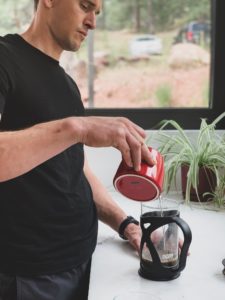 Health + Flavor Enhancers:
Health + Flavor Enhancers:
Stevia or Monk Fruit
If you prefer your coffee to have a sweeter taste, instead of using sugar or chemical-laden artificial sweeteners, add a few drops of Omica stevia (Omica butterscotch flavor is my personal favorite) or monk fruit. These are more natural choices and have zero sugar, calories, or carbohydrates. They also taste up to 200x sweeter than actual sugar, meaning you need a heck of a lot less to sweeten up your coffee.
Vanilla
Vanilla is one of my favorite additions to coffee because it adds natural sweetness without any sugar, as well as a host of other health benefits. Vanillin, the main component of vanilla, has mood-supporting and cognition-enhancing properties by boosting dopamine and brain-derived neurotrophic factor (BDNF), making it an excellent brain-boosting addition to your morning coffee.
The key, however, is to avoid the cheap extract or imitation vanilla at the grocery store, and instead get the real organic vanilla powder and sprinkle it into your coffee, or find Madagascar vanilla beans to create homemade vanilla extract by soaking them in vodka for 4-6 weeks.
Cinnamon
Cinnamon is another one of those health-promoting, naturally sweet additions for coffee. Its benefits are well-known, including promoting healthy blood sugar, circulation, decreasing inflammation, and more.
Simply sprinkle a bit of ground cinnamon (preferably Ceylon) into your brewed coffee, or even on the grounds before brewing, and you’ve got yourself a healthy, piping-hot-Christmas-in-a-cup coffee.
Rosemary
Rosemary is one of my favorite herbs because of its potent longevity benefits, as well as antimicrobial, anti-inflammatory, antioxidant, and neuroprotective properties. Most people have never thought of putting rosemary on anything other than potatoes, but it adds a refreshing, piney flavor and a whole host of extra antioxidants that will have your brain buzzing.
Just add a large pinch of fresh rosemary leaves to your coffee grounds, and proceed with your brewing process (French Press or another course-grind method seems to be best).
Cacao
Coffee and chocolate, a near-perfect combo. Cacao, the “raw” version of chocolate, is absolutely loaded with antioxidants, minerals, and vitamins. It’s also a potent sirtuin-activating compound (STAC), promising compounds that have been shown to help prevent aging-related diseases such as Alzheimer’s, type 2 diabetes, and obesity, and potentially extend life span.
(Fun fact: Sirtuin-activating foods like chocolate, coffee, and wine form the basis of the newest fad “Sirtfood Diet”, which is how popstar Adele recently dropped a whopping 100 pounds.)
Adding cacao powder to coffee is a bit of an “acquired taste” for most people as it can be very bitter, but you can check out the bottom of this article for two absolutely decadent coffee + cacao recipes.
Sea Salt
If you read my article “The Deadly Truth Behind “Healthy” Kosher Salt And Commercial Sea Salt—And How To Tell If Your Salt Is Refined,” you know that I do not hold back when it comes to (the right kind of!) salt. Even my morning joe gets a dose. I like organic, toxin-free Aztec Sea Salt, which also contains more than 80 beneficial trace minerals.
Good Fats
Sometimes in the afternoon or for a “light breakfast” day, I'll occasionally add a healthy fat like organic MCT oil or ghee to my coffee for a bit of a “fatty coffee” approach, which can allow some of the brain-boosting cholesterols in the coffee to cross the blood-brain barrier for an added cognitive pick me up, and also a bump in ketones. Medium-chain triacylglycerols (MCTs) have been shown to improve weight loss and have the potential to reduce your risk for Alzheimer's, cardiovascular disease, and epilepsy. Grass-fed butter and coconut oil are other good options, depending on your taste preferences and desired calorie intake.
Mental + Physical Performance Boosters:
Nicotine
Now, I’m not suggesting you start lighting up a cigarette along with your morning cup of coffee (although one study showed that coffee may be protective against some of the damaging effects of cigarettes—likely due to the nicotine content). But nicotine and caffeine do appear to be a potent cognitive- and performance-boosting stack, one which I often use on mentally demanding days that include hours of writing, podcasting, and speaking.
Luckily, there are much safer ways to combine coffee and nicotine these days, my favorite of which is chewing on a 1 mg cinnamon-flavored nicotine toothpick along with a cup of coffee (the cinnamon flavor blends quite nicely with a Cup o’ Joe).
If you’re looking to enhance physical performance, consume 100 mg or more of caffeine and 2.5 mg or more of nicotine.
Of course, nicotine can be addictive. I recommend limiting yourself to no more than 1-2 toothpicks/mints/pieces of gum at one time, and only using them on more cognitively demanding days or prior to a hard workout.
Lion’s Mane
Also known as the hedgehog mushroom, lion’s mane is an edible fungus with a long history of use in traditional Chinese medicine. It is particularly rich in β-glucan polysaccharides, which are responsible for the neuroprotective and cognition-enhancing properties of this mushroom, as well as its ability to improve memory, protect neurons from inflammatory damage, and boost BDNF.
Adding lion’s mane to your morning coffee, most conveniently in a powdered form such as Four Sigmatic’s Lion’s Mane, can help boost your cognitive function and even induce the sprouting of new neurons.
For The Caffeine-Sensitive or PM Coffee Drinkers:
L-Theanine
Research suggests that caffeine and L-theanine together can boost concentration, focus, and energy while reducing anxiety. Therefore, adding L-theanine to your coffee is helpful when you want to avoid the stimulating effects of caffeine, such as a late-evening dinner or a workday afternoon, when a cup of coffee by itself might keep you awake too late into the night.
For this stack, use a ratio of four parts L-theanine to one part caffeine—for example, 400 mg of L-theanine with 100 mg of caffeine (~one 8-ounce cup of coffee). You may want to start with a smaller dose, such as 200 mg of L-theanine and 50 mg of caffeine, then work your way up to find the best dose for you.
Tulsi + Astragalus
Tulsi, a calming adaptogenic herb, has been shown to improve mood, support digestion, and promote stable energy levels. Because it is also anxiolytic (meaning it reduces anxiety), tulsi, like L-theanine, helps reduce caffeine’s overstimulating effects.
I love to blend Tulsi with Astragalus, which, in Chinese medicine, is a boundlessly invigorating herb that provides a stable source of energy. Astragalus contains a variety of saponins, flavonoids, and polysaccharides and, when paired with antioxidant-rich coffee and Tulsi, creates a match made in longevity heaven.
For this blend, which I often make in the afternoon, I’m a fan of the Four Sigmatic Adaptogen Coffee, which contains coffee, astragalus, tulsi, and cinnamon.
Know Your Limits & Don’t Overdo It
As mentioned, one of coffee’s beneficial—yet potentially deleterious—compounds is caffeine. For the vast, general population of healthy adults, moderate caffeine intake is not associated with adverse effects, and surprisingly, the health benefits are linearly correlated with the amount of coffee you drink.
Acceptable caffeine levels for most adults with no major health issues come out to about 200-400mg per day or 3-5 cups of coffee at max (although rumor is that the philosopher Voltaire consumed more than 60 cups per day!).
However, there are still several reasons to consider limiting or modifying your caffeine intake for maximum health benefits.
Some Health Benefits Decline With Caffeine Tolerance
Some of the benefits of coffee, such as increased athletic performance, cognitive enhancement, and fat-burning, have been shown to decrease or plateau as you become more tolerant to caffeine. Coffee works by blocking your brain's adenosine receptors, which play a central role in sleep, arousal, and cognition. Studies have suggested that your body will increase the production of the adenosine receptors with regular caffeine consumption, which will decrease the positive effects.
Slow Caffeine Metabolizers Are More Negatively Impacted by Caffeine
Certain folks are genetically “slow caffeine metabolizers”, meaning caffeine stays in their system much longer than others who are “fast metabolizers”. This means that several cups of coffee, or having caffeine after a certain time of day, can dramatically affect sleep quality and increase inflammation.
Not sure if you’re a slow caffeine metabolizer? Take a genetic test (like 23AndMe), and look for the CYP1A2 gene. If you have the ‘AC’ or ‘CC’ genotype, you’re a slow metabolizer (AA = fast). Some tests will also tell you directly in your results what kind of caffeine metabolizer you are.
Alternatively, if you know that a certain amount of coffee—or maybe even any at all—causes you to be wired, jittery, anxious, and affects your sleep, you’re probably a slow metabolizer and should be cautious with caffeine intake.
Caffeine Can Impair Sleep Quality
Caffeine has a half-life of 5 hours for average individuals (up to 9.5 hours), meaning that’s how long it takes to be completely cleared from your system. So even if you’re a “fast metabolizer,” and whether you notice it or not, consuming caffeine within a few hours of sleep has been shown to impair sleep duration, quality, and efficiency, and therefore your health.
Luckily, many of these caffeine issues can be mitigated by:
- Knowing your personal caffeine limits, and perhaps doing a genetic test to find out whether you’re a fast or slow caffeine metabolizer
- Avoiding caffeine within at least 5 hours of bedtime
- Drinking coffee with lower caffeine levels per serving (why I choose medium roast Arabica coffee)
- Adding “calming” ingredients to your coffee, especially in the afternoon, like L-Theanine, Tulsi, or Astragalus
- Regularly cycling off caffeine for 7-12 days every one to two months, and/or switching to a clean decaf coffee to get the beneficial antioxidants and diterpenes in coffee without the caffeine
If you’re looking for more details, I suggest reading my article How To Get All The Health Benefits Of Coffee Without The Caffeine (& My Go-To Source For Decaf Coffee).
Summary
Whew! There you have it, your complete guide on the latest research on the health benefits of coffee and exactly how to maximize them for yourself. To recap…
- Coffee’s unique health benefits come from its natural levels of caffeine, antioxidants, and diterpenes.
- It’s been shown to have beneficial effects on everything from endurance exercise performance to fat-burning and metabolism, mood and mental health, long-term brain health, cardiovascular and metabolic health, liver health, and is even correlated with reduced risk of early death from a number of causes.
- Not all coffee is created equal; 97% is “commercial coffee,” meaning it’s likely sprayed with pesticides, contains mold or mycotoxins, high in acrylamides, and stored in a way that degrades its freshness and natural oils and nutrients.
- The best coffee you can get for your health is one that’s organic, tested for pesticides and mycotoxins, and packaged in nitrogen-flushed bags.
- Store your coffee away from air, moisture, light, and heat, preferably in opaque-airtight containers.
- If you’re concerned about LDL cholesterol, brew your coffee with a method that uses paper filters.
- Drink it black, or biohack it with natural sweeteners, spices, herbs, and adaptogens.
- Know your personal caffeine limits (they depend on your genetics, but typically around 200-400 mg for most people), avoid caffeine within 5 hours of bedtime, add calming adaptogens to your coffee in the afternoon, and regularly cycle off caffeine to keep your tolerance low.
The good news is that you don’t have to spend hours scouring the interwebs for coffee that is organic, specialty grade, mold and mycotoxin-free, medium roast, Arabica, nitrogen-flushed—and most importantly—delicious…because the folks at Kion and I already created it for you.
Kion Coffee is roasted in Boulder, Colorado by our expert roastmasters, and rush-delivered to your doorstep in nitrogen-flushed bags that keep it as fresh as the day it was roasted. It comes in Regular Whole Bean or Mountain Water Processed Decaf…
…and for you busy parents, adventurous travelers, or folks without enough space in your cabinet for a coffee grinder, we just released Kion Ground Coffee—which is the same high-quality, fresh, delicious coffee, now pre-ground for your coffee-sipping convenience.
For even more on coffee, you can check out some of my previous podcasts and articles:
-
- The Ultimate Coffee Podcast: Everything You Need To Know About Coffee Health, Including The Latest Lab Results On Which Coffee Is The Healthiest.
- Is It Healthy To Put Fat In Your Coffee? (And My 3 Favorite Fatty Coffee Recipes)
- Is Cholesterol In Coffee Bad (& How To Make Your Coffee As Healthy As Possible), What To Do About Low Progesterone, How Carbs Impact Your Immune System & Much More!
- 63 Cups Of Coffee A Day & More: Five Simple Things You Can Do to Live a Longer, Healthier Life.
- 23 Years Of Suckin’ Down Coffee: Tips, Tricks & Hacks I’ve Discovered For Getting The Most Out Of One Of The Safest Superfoods That Exists.
- The Kion Coffee Enema: Everything You’ve Always Wanted To Know About Coffee Enemas (But Were Afraid To Ask).
- How to Get All the Health Benefits of Coffee Without the Caffeine (& My Go-To Source for Decaf Coffee)
In the meantime, leave your questions or let me know your favorite coffee tips and tricks in the comments below!

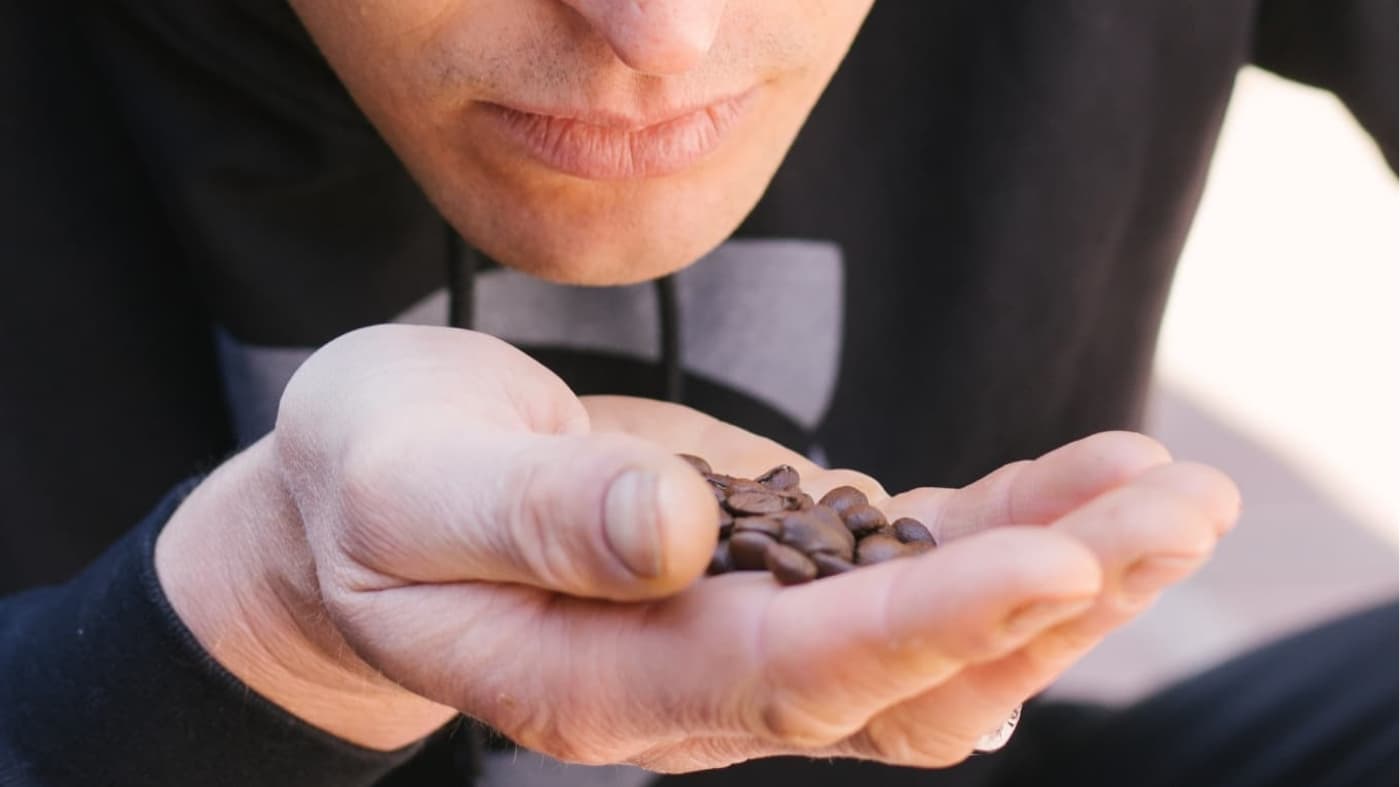
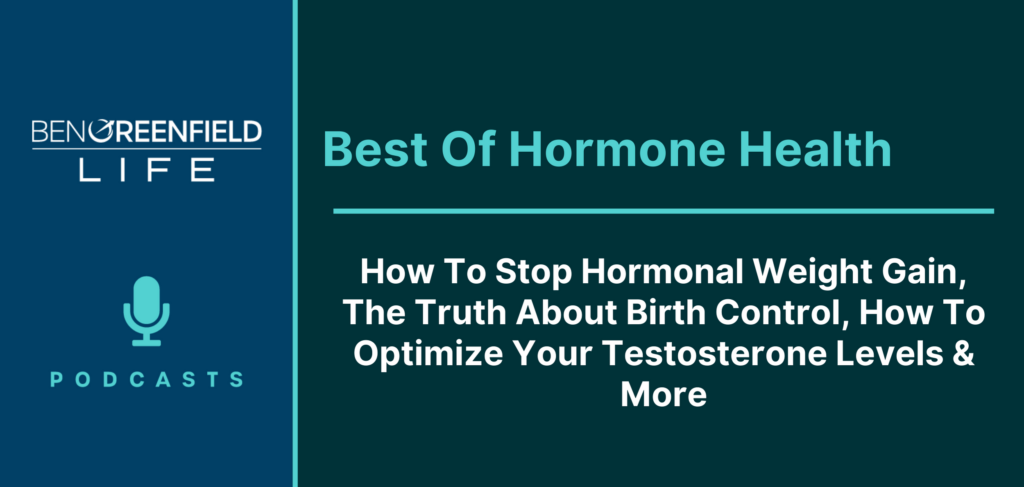
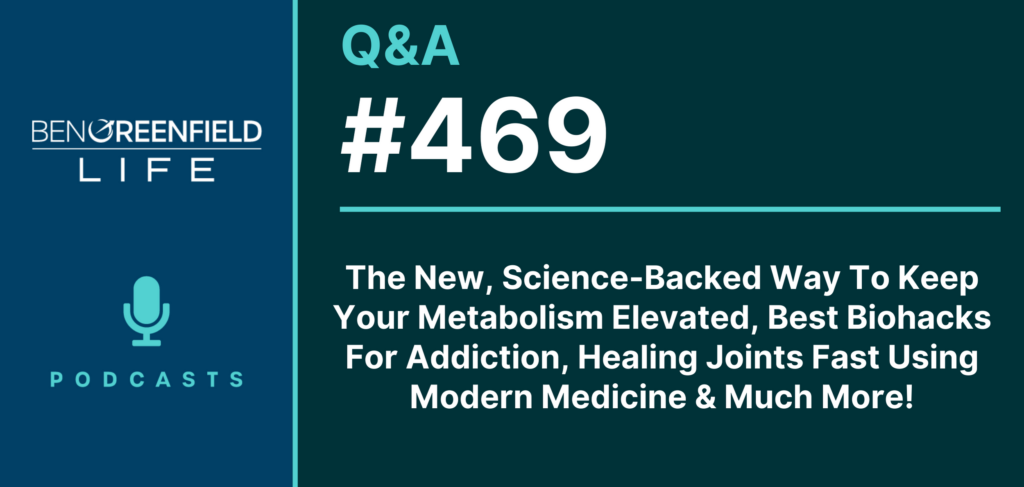

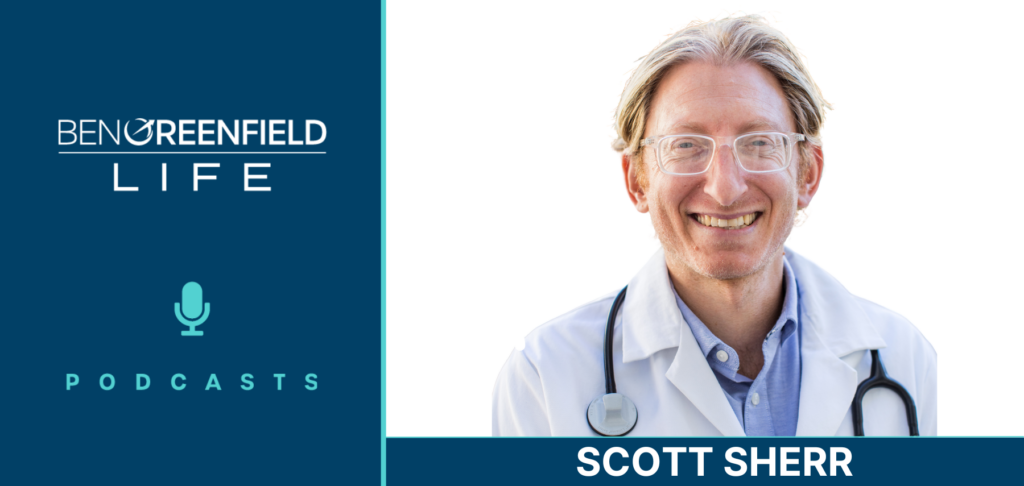
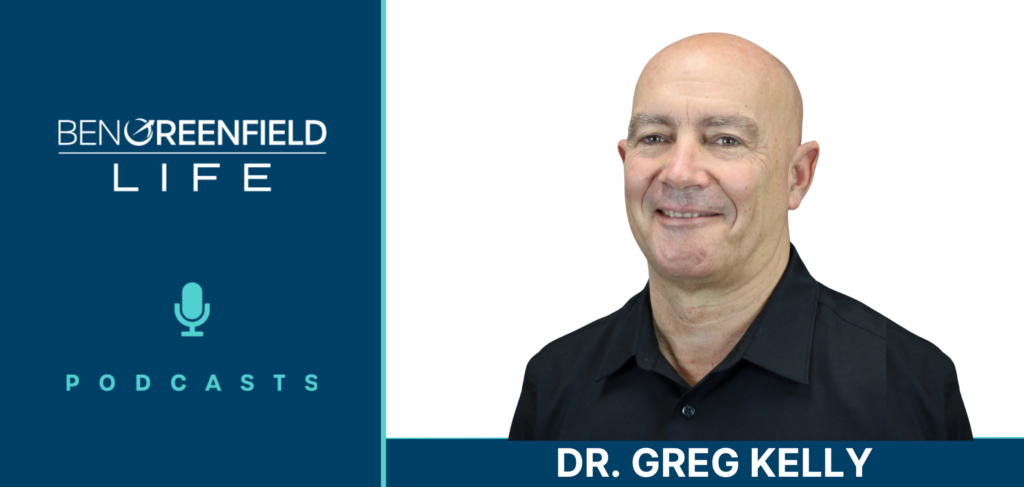


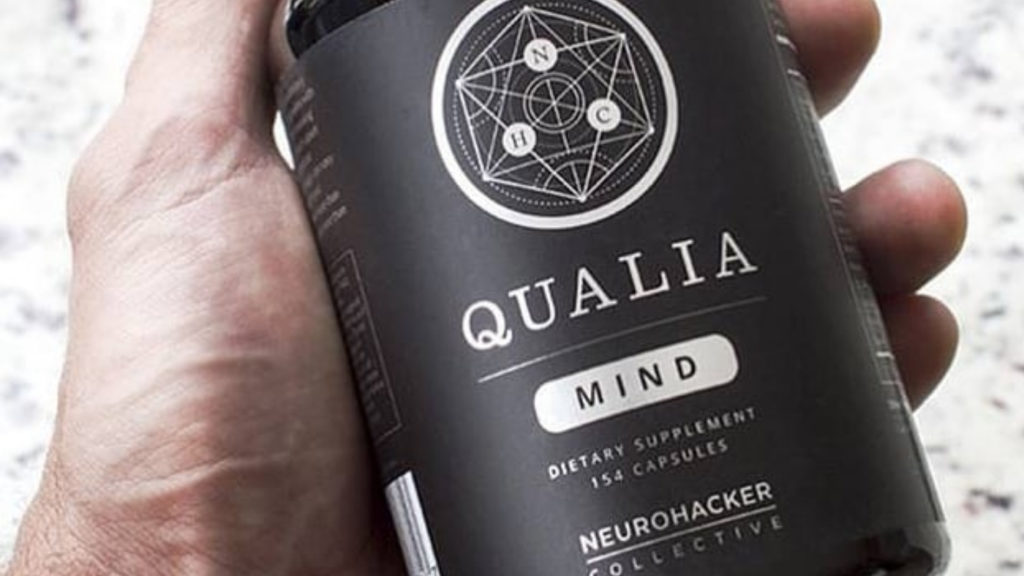




Hello Ben, I recently started listening to your podcasts and enjoy the way you dig deep to get to the truth!
I was wondering if you’ve read / heard Jason Christoff’s work on coffee and mind control. Feedback welcome.
Article: https://courses.jchristoff.com/blog/12-little-known-facts-about-coffee/
Fascinating podcast interview:
https://youtu.be/JjfgxPHHOr0?si=fRnWRBHU1LN8ROQC
Hello Ben, I recently started listening to your podcasts and enjoy the way you dig deep to get to the truth! I was wondering if you’ve read / heard Jason Christoff on coffee and mind control. Feedback welcome.
Article: https://courses.jchristoff.com/blog/12-little-known-facts-about-coffee/
Fascinating podcast interview:
https://youtu.be/JjfgxPHHOr0?si=fRnWRBHU1LN8ROQC
If I have black coffee and mix a scoop of protein powered does that diminish the benefits of the black coffee?
Hi, Ben!
Do you think drinking coffee every other day (instead of skipping a whole week once a month) also works in terms of the cycling off we want?
Not mentioned also that coffee is acidic in nature with PH around 4 , many people will get heartburn and other side effects especially if you take it on empty stomach early morning. Caffeine also increases LES relaxation (the sphincter at the end of the esophagus) which increases the risk to have acid from stomach going up to the esophagus and causing inflammation in the esophagus (GERD and esophagitis). Probably having one cup per day not on empty stomach and not late during the day would be a better and healthier practice in my opinion
Does the anti-inflammatory effects of coffee counter the pro-inflammatory effects via cortisol stimulation?? Been wondering this for a long time.
Cortisol is anti-inflammatory.
Hey Ben when you say; “Caffeine has a half-life of 5 hours meaning that’s how long it takes to be completely cleared from your system.”
Isn’t that clearly incorrect? Doesn’t the “half-life” mean the time it takes for half of the substance to be cleared from your system…
So in fact Caffeine with a half-life of 5 hours would take 4-5 half lives to be removed from your system. 20-25 hours?
Trying to clear this up… For this reason I don’t think it ever makes sense to have an afternoon cup… Unless emergency
Half-life means the amount of time it takes for half of the substance to be gone. Thus, coffee with a half-life of 5 hours = a full 10 hours to be completely cleared of the bloodstream (Ben made a little error in saying that but he actually did not make that same error in other articles.)
Hello Ben,
Long time listener here, I remember once you mentioned websites for a good research. I am struggling to find something that has a good quality and volume. Would really appreciate if you could share some.:)
Love your dedication, thanks.
Hi Mr. Greenfield,
Certain autoimmune diets (i.e. AIP diet), eliminate coffee completely since they believe it can cause inflammation and trigger an autoimmune response. What are your thoughts on this?
Thank you!
Does coffee enemas give the above mentioned health benefits and negative effects ?
Fantastic writeup as usual. Can you include a good list of the better coffee brands that do not have molds and the other undesirable elements?
Do you have any thoughts on the possible negative influence of caffeine on collagen synthesis?